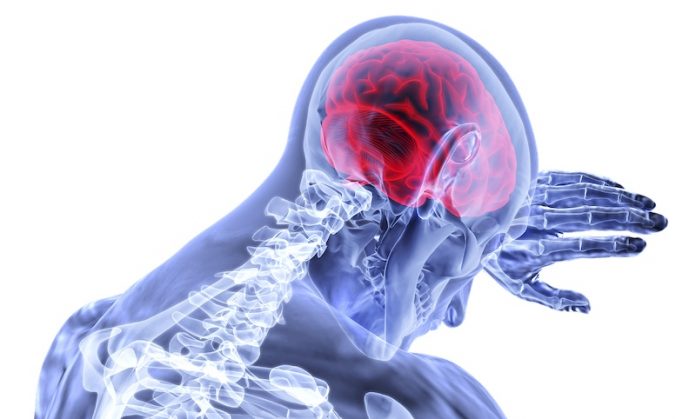
In a new study, researchers explored the association of COVID-19 and acute ischemic stroke.
They found higher than expected rates of unexplained or “cryptogenic” strokes, as well as delays in stroke presentations or symptom recognition.
The research was conducted by a team at Emory University Hospital.
Ischemic stroke, caused by a clot that blocks blood flow to the brain, is the most common form of acute stroke.
But in some instances, despite looking for causes of these strokes—by a thorough cardiac evaluation (heart conditions are one of the most common causes); by looking at blood vessels supplying the brain or by testing for increased blood clotting conditions—the cause cannot be determined.
The study looked at COVID-19 patients with ischemic stroke from the Emory University Hospital system.
Of 396 ischemic stroke patients admitted during the study period from March to July 2020, 13 were diagnosed with COVID-19.
The team found the occurrence of stroke greater in COVID-19 patients who had risk factors like diabetes, high blood pressure, or heart rate problem/flutter.
Males and African Americans were predominantly affected by strokes in the study.
The team found while unexplained strokes account for only 10 to 30% of all strokes, in this study it in 69% of the patient population which is extremely high and suggests the possibility of COVID-19 as a likely contributory factor.
Compared with the patients who did not have COVID-19, this was a big difference of 69% of strokes of cryptogenic etiology in the COVID-19 ischemic stroke group compared to only 17% in the non-COVID ischemic stroke group.
The study also found a prolonged average amount of time to symptom recognition averaging up to five days, a potential impact of the COVID crisis.
These delays limited the use of acute reperfusion treatments, including drugs and surgery, to restore blood flow in or around the blocked vessels which can only be used when patients present within a 24-hour period.
The researchers explained that delayed presentations could be a result of patients waiting longer before coming to the hospital due to self-isolation or quarantine precautions or the fear of contracting COVID that have led to a general decline in acute stroke evaluations across the country.
The findings, therefore, highlight the need for increased community awareness/education regarding the urgency of stroke symptoms and the need to ensure rapid evaluation to facilitate early stroke treatments.
Patients with COVID-19 symptoms and their next of kin need to be educated regarding the urgent need to get help and be evaluated if any concerning symptoms of a stroke are identified.
One author of the study is Dinesh V. Jillella, an assistant professor of neurology.
The study is published in PLOS ONE.
Copyright © 2020 Knowridge Science Report. All rights reserved.



